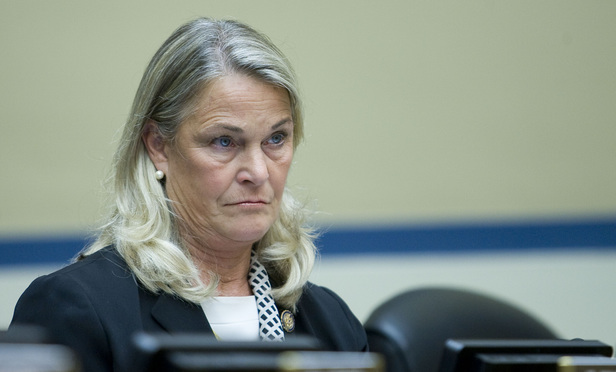Buerkle has consistently voted against penalties for late reporting of dangerous product defects. In a statement last year, Buerkle said she had voted in favor of only three of the dozen civil penalties assessed in the previous two years. “One might think that I oppose civil penalties as a matter of course but actually my opposition has been for a variety of reasons,” she said.
Among them, she said, is a lack of transparency and consistency in how CPSC staff arrive at penalty amounts.
“All else equal, I would think that a company that reports before any serious injury has occurred should be subject to a lower penalty than a company that waits until an injury has occurred. Similarly, I would think that a company with a history of noncompliance with reporting requirements would be subject to a higher penalty than one who has a perfect track record,” Buerkle said then. “Yet when the Office of General Counsel sends up a recommendation for approval of a civil penalty settlement, it often seems as though the staff highlights the aggravating factors that support a higher penalty amount and ignores or downplays the mitigating factors. There appears to be little or no consistency on how factors are treated from case to case.”
Her predecessor took a decidedly different approach. Seizing on Congress’ decision in 2008 to lift the cap on CPSC penalties from $1.8 million to $15 million, Kaye was outspoken in pushing for higher penalties where the facts warrant tougher enforcement. Last year, while cautioning that he did not want the commission to go on a “joy ride,” Kaye said he wanted civil penalties to reach the “double million-dollar digits.”
Buerkle would later criticize Kaye over those remarks and note that, not long after his speech, the CPSC staff “obliged” with a record-setting $15.45 million settlement with Gree Electric Appliances over defective humidifiers that overheated and caught fire. She was the only commissioner to vote against the Gree settlement.
“She’s talked publicly about really looking to analyze which firms have made a significant effort toward engagement with the agency. There are some firms that aren’t reporting [defects],” said Crowell & Moring partner Cheryl Falvey, a former CPSC general counsel. “I think she’ll continue to look for the bad actor, but she’s not going to be looking to aggressively penalize firms that can demonstrate that they’re trying to work hard with the commission.”
Buerkle’s no fan of mandatory product safety standards. On Jan. 11, the CPSC voted 3-2 to approve a new federal safety standard for infant sling carriers. Two weeks later, just days after Trump’s inauguration, Buerkle released a statement explaining that she opposed the standard “because it is likely to ruin dozens if not hundreds of law-abiding small businesses without preventing any deaths or significant injuries.”
“We have just witnessed the inauguration of our 45th president,” she said on Jan. 24. “This is not the time to pile on more regulation, particularly when the benefits (if any) are minimal.”
The next day, Buerkle and her fellow Republican commissioner, Joe Mohorovic, were unsuccessful trying to terminate the agency’s consideration of a mandatory standard for recreational off-highway vehicles.
Buerkle’s push to terminate that rulemaking, albeit unsuccessful, burnished her reputation for wanting to partner with companies. The failed vote to end the rulemaking, she said, “betrays those on the industry side” who worked with the CPSC to craft voluntary standards.
“Implicit in this situation was a bargain—you agree to a tough voluntary standard, and we will terminate our rulemaking,” Buerkle said.
“One of the most troubling aspects about this outcome is the adverse effect it may have on CPSC’s efforts in the future,” she added. “It is not going to help the staff negotiate tougher standards if their assurances of adequacy carry no weight with the commissioners. The failure to terminate this rulemaking undermines the credibility of our agency.”
Falvey said described Buerkle as “very empathetic,” saying she “has made a mission to get out to the regulated community.”
“She’s all about consensus-building,” Falvey said.



